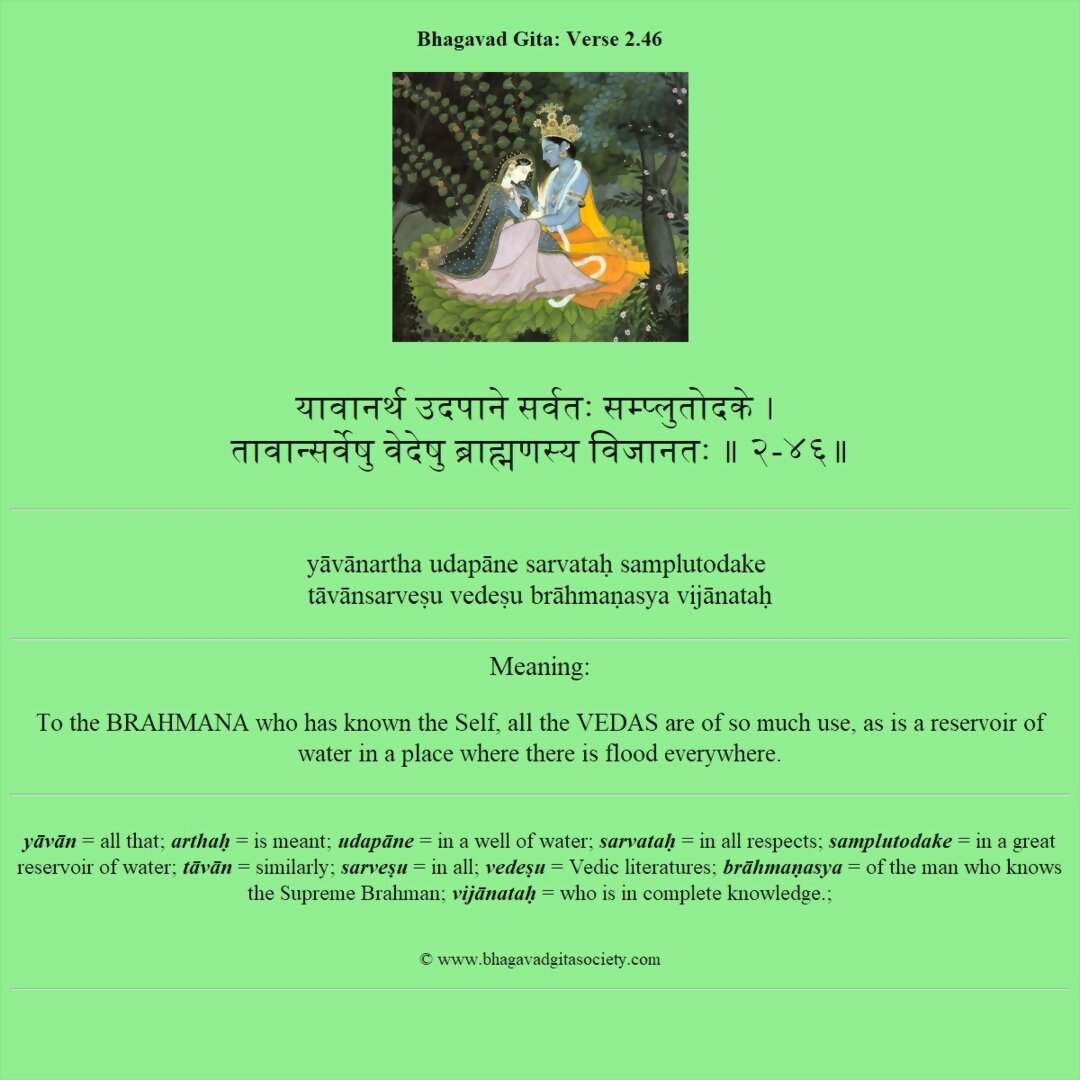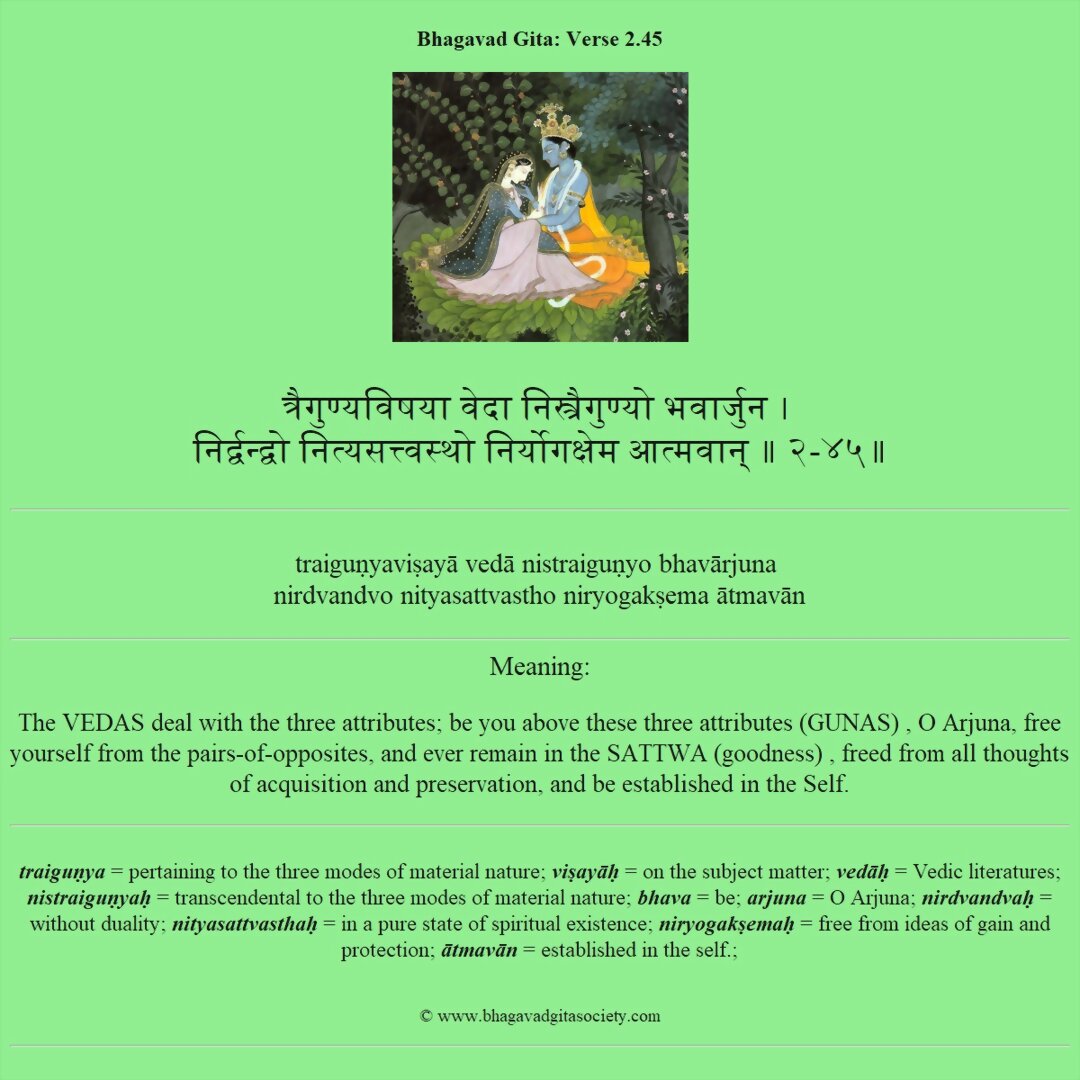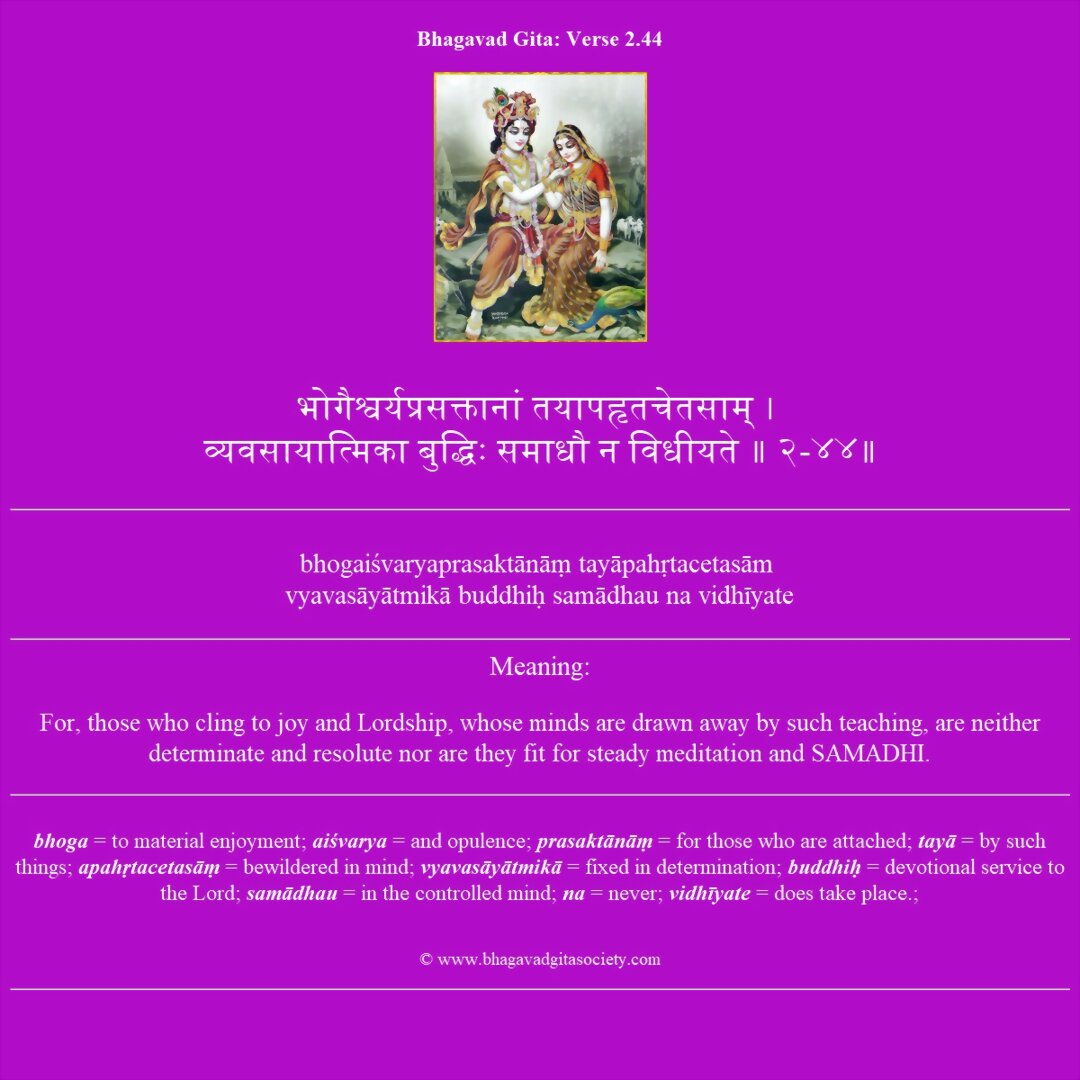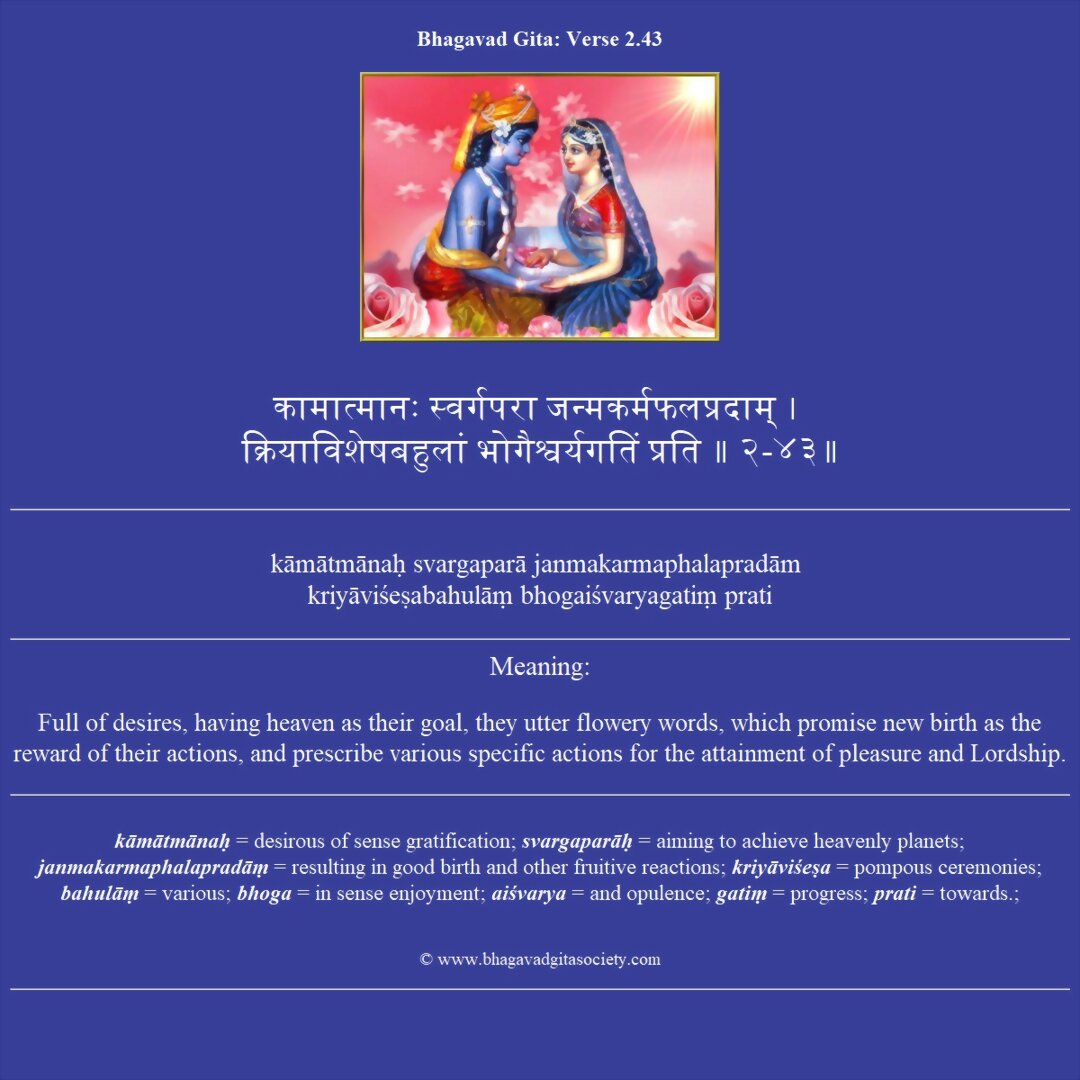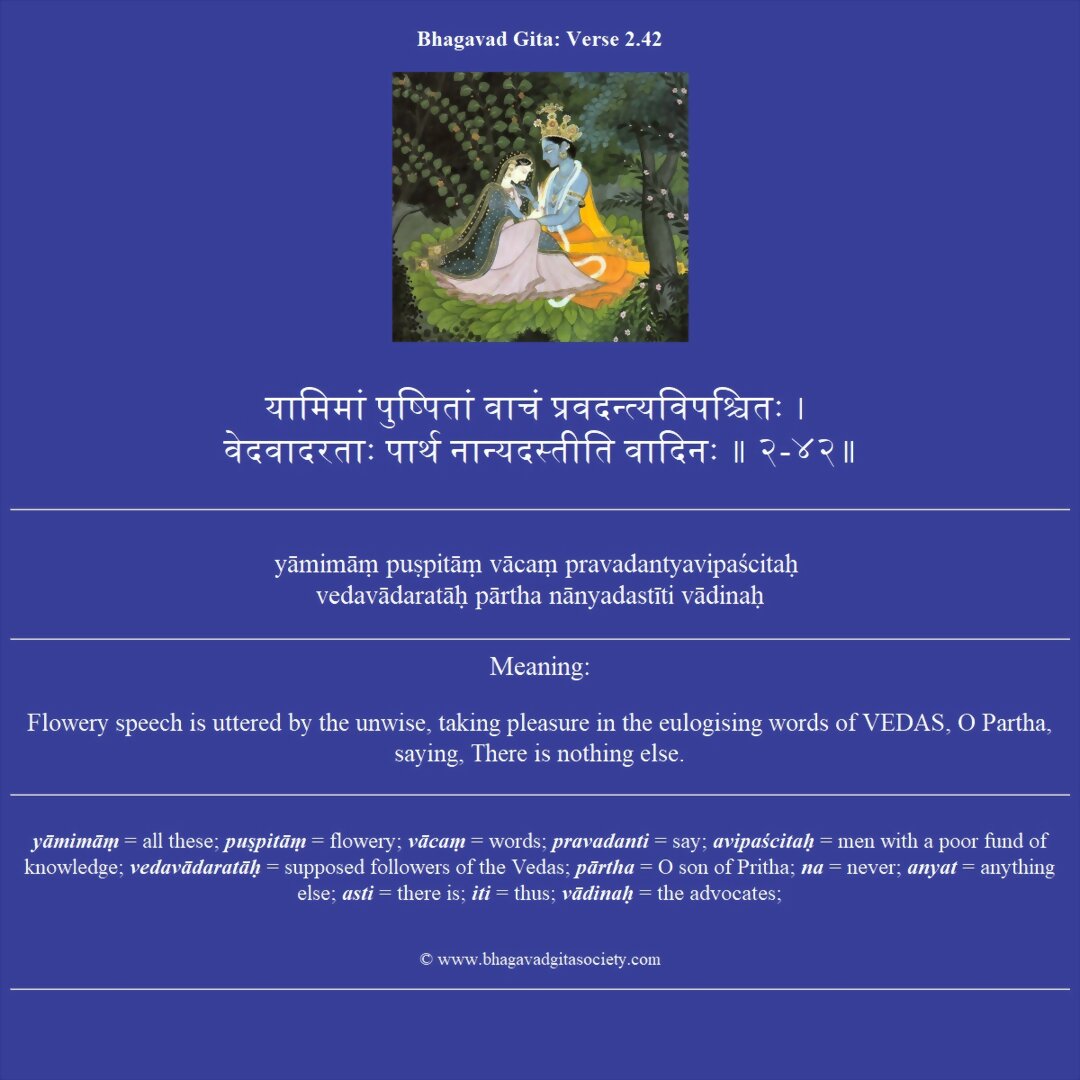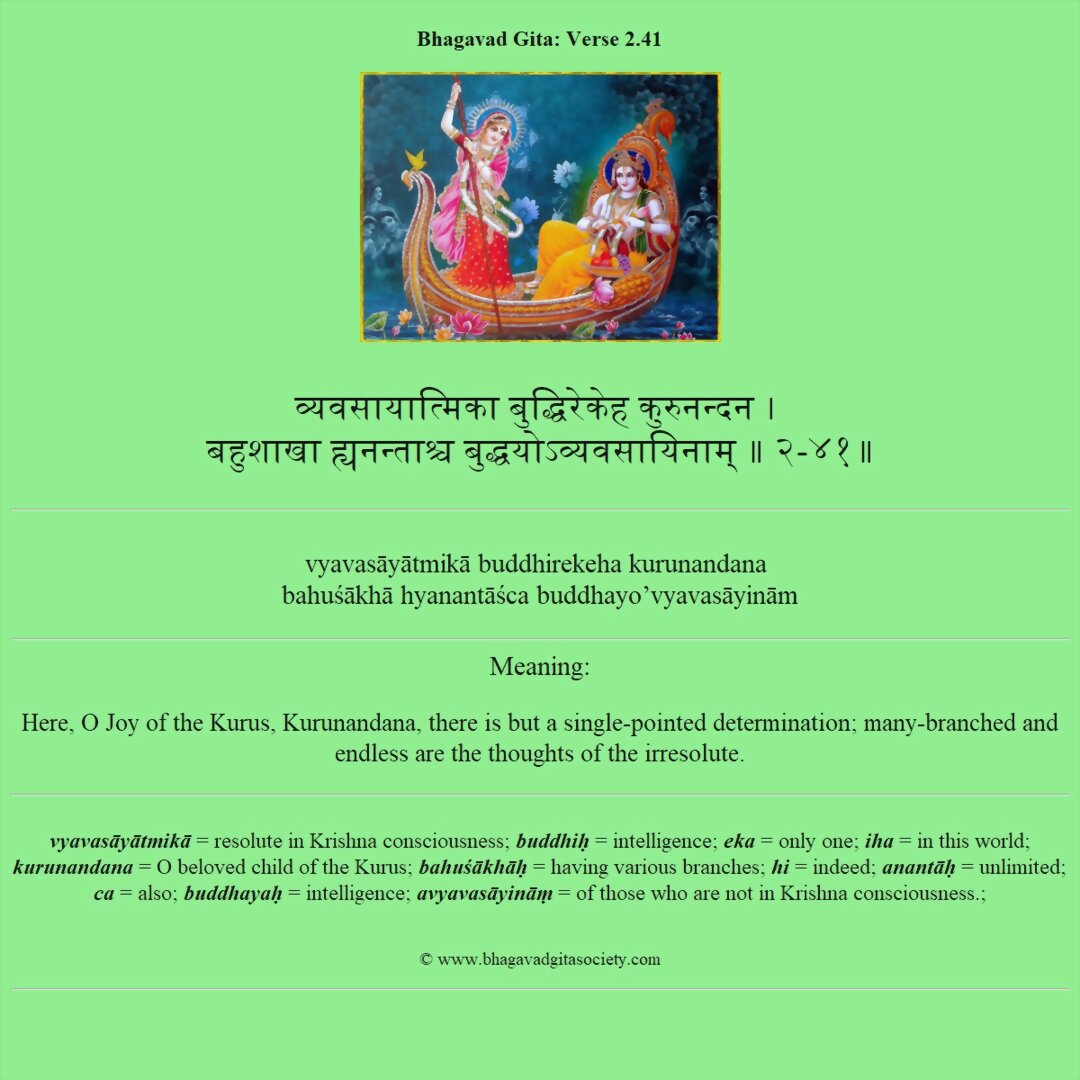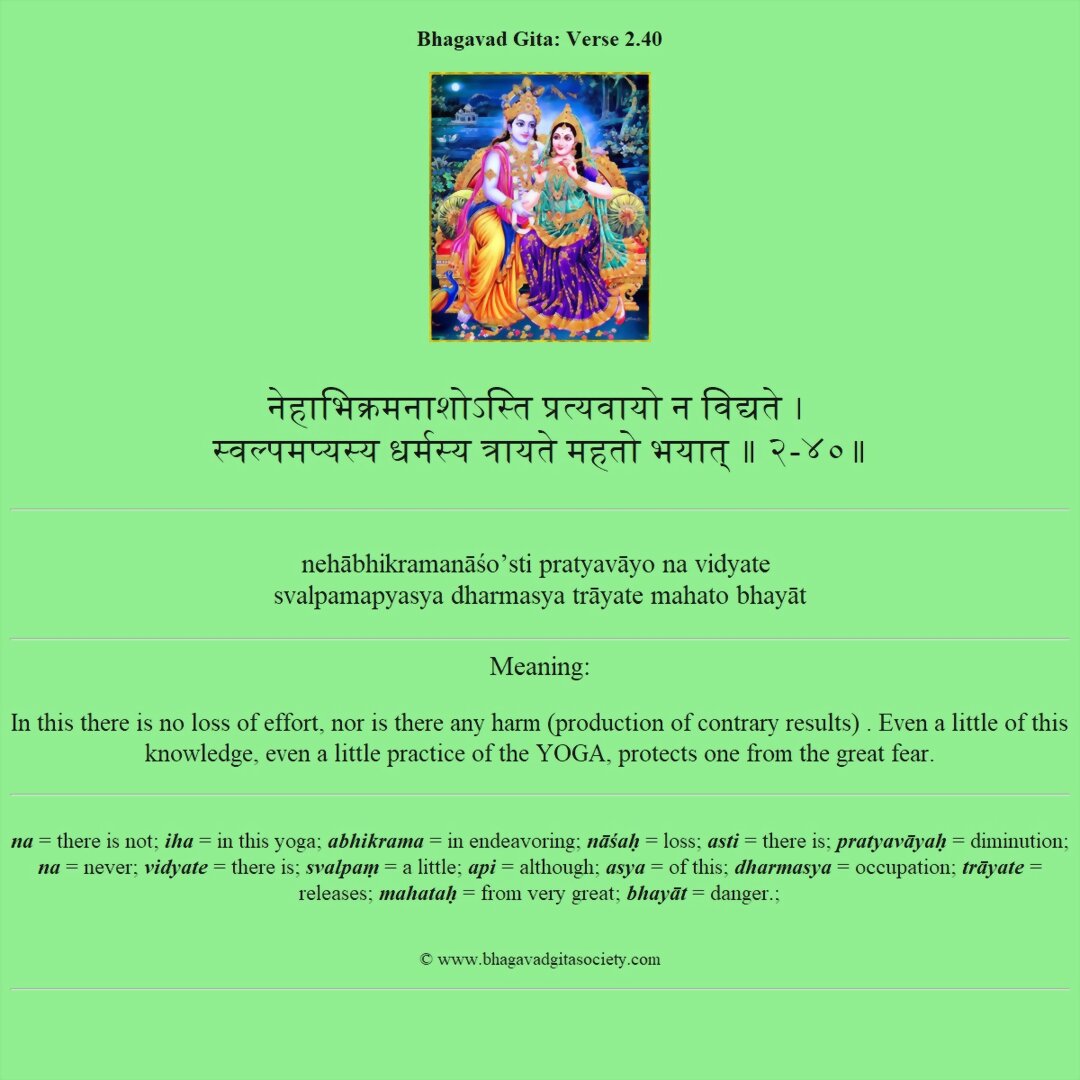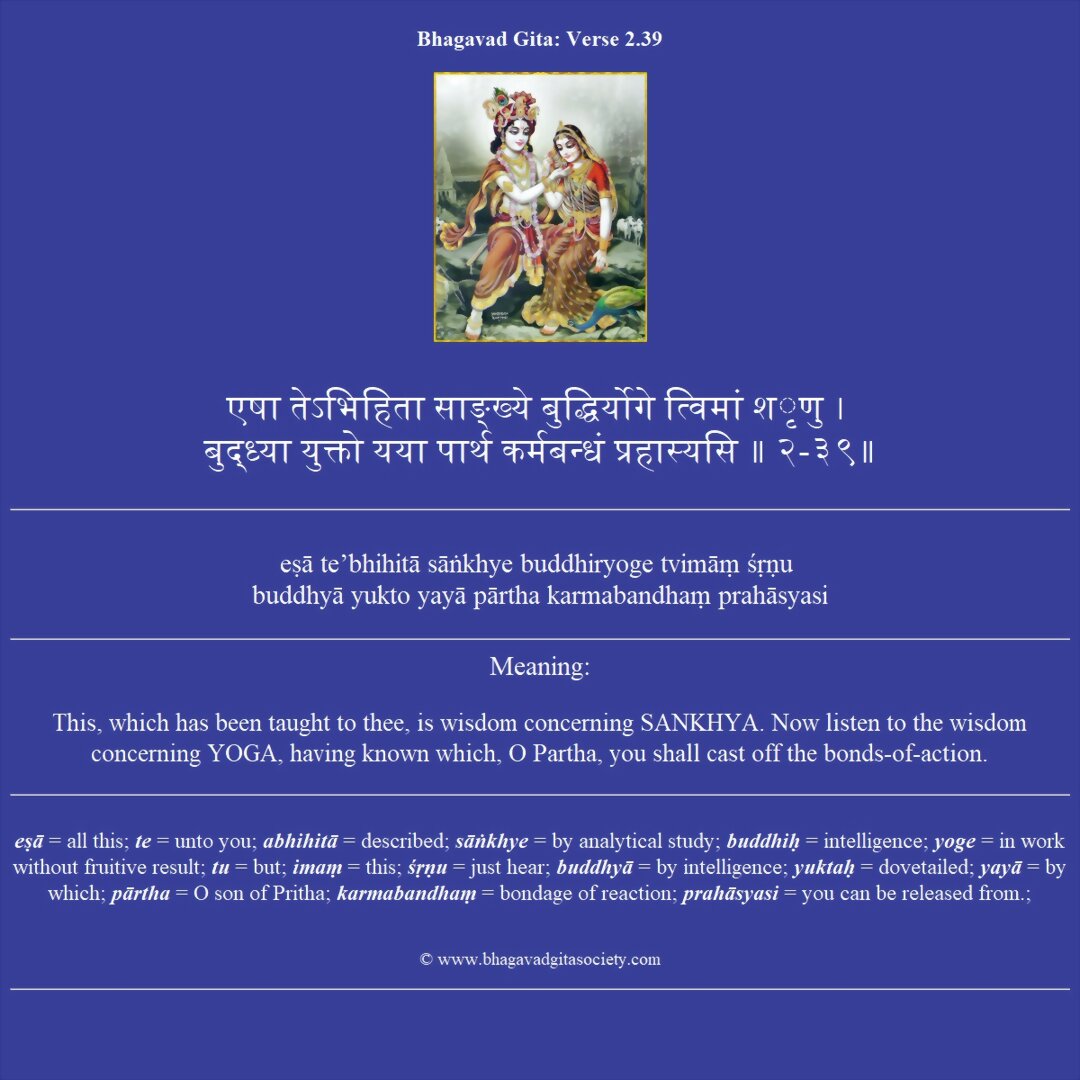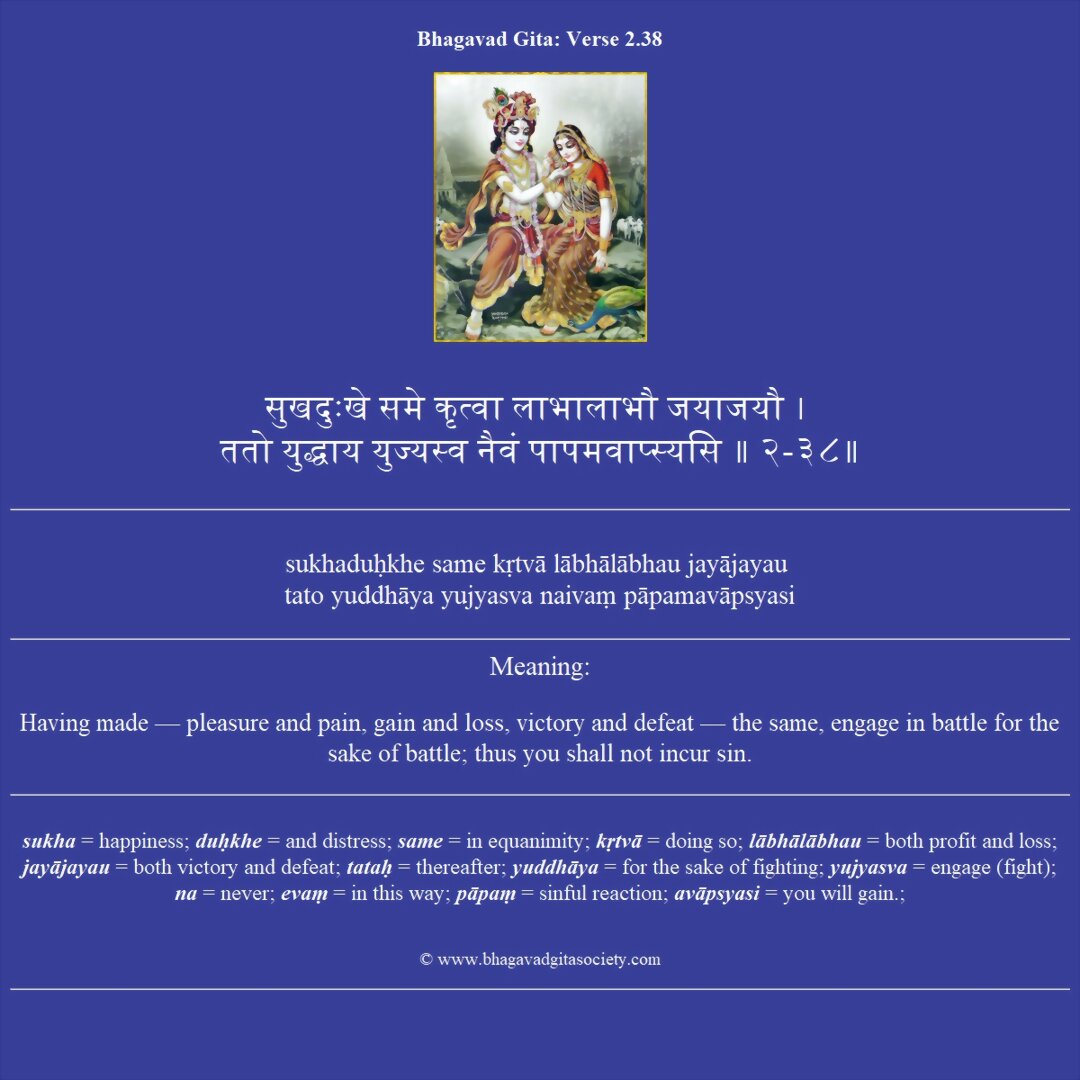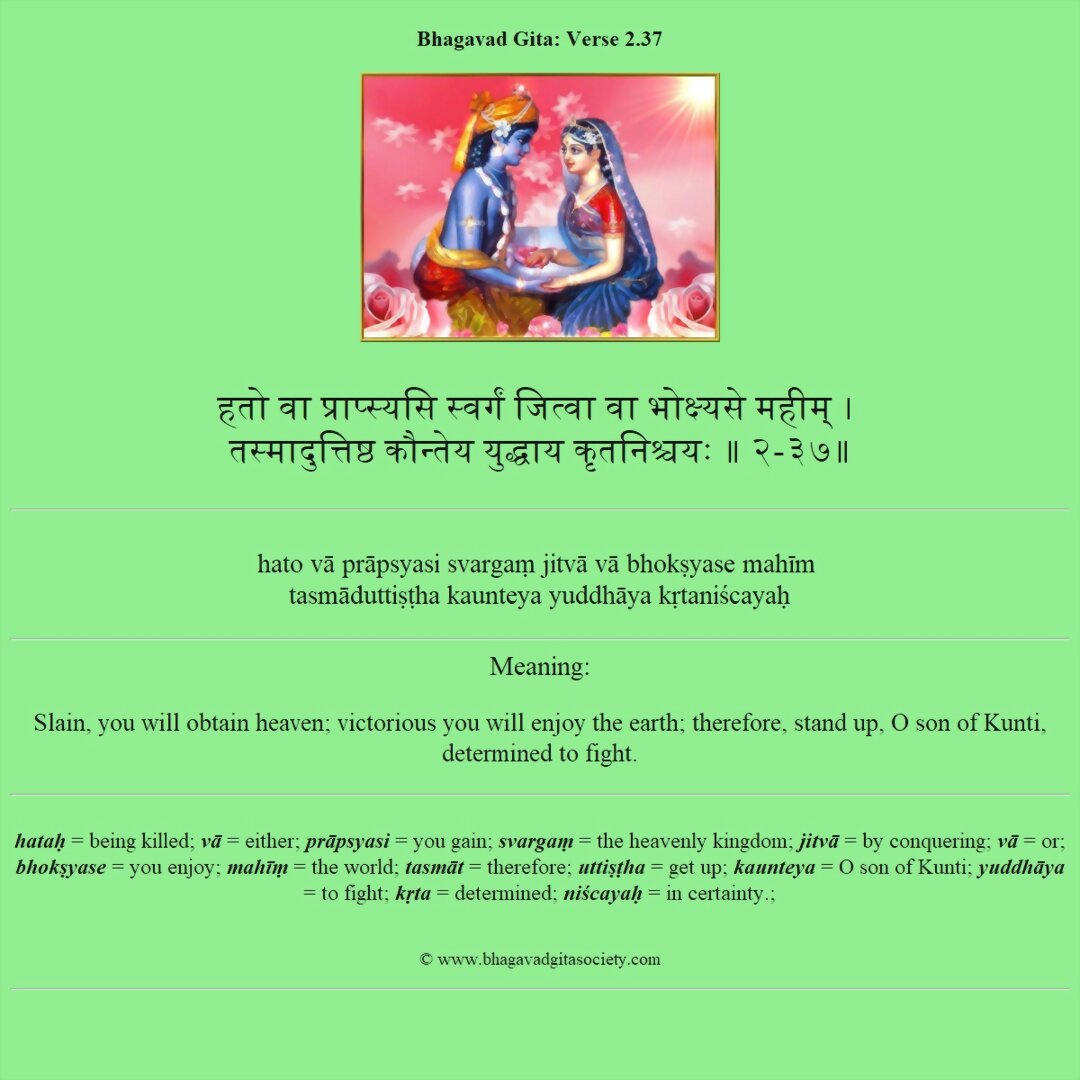Bhagavad Gita: Verse 2.46
यावानर्थ उदपाने सर्वतः सम्प्लुतोदके ।
तावान्सर्वेषु वेदेषु ब्राह्मणस्य विजानतः ॥ २-४६॥
yāvānartha udapāne sarvataḥ samplutodake
tāvānsarveṣu vedeṣu brāhmaṇasya vijānataḥ
Meaning:
To the BRAHMANA who has known the Self, all the VEDAS are of so much use, as is a reservoir of water in a place where there is flood everywhere.
yāvān = all that; arthaḥ = is meant; udapāne = in a well of water; sarvataḥ = in all respects; samplutodake = in a great reservoir of water; tāvān = similarly; sarveṣu = in all; vedeṣu = Vedic literatures; brāhmaṇasya = of the man who knows the Supreme Brahman; vijānataḥ = who is in complete knowledge.;
